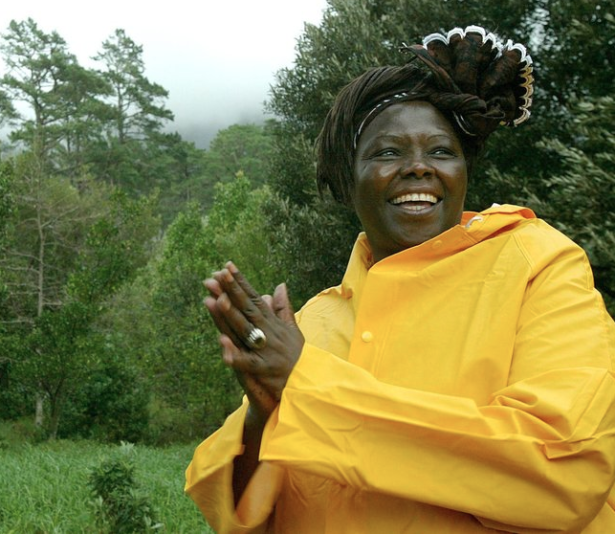“Stand on the shoulders of giants.” It’s Google Scholar’s slogan, but it could just as easily be ours. The work we’ve done and continue to do is only possible because of others who have come before us.
The United Nations designated August 19th as World Humanitarian Day. It is a day to celebrate the work of those who have come before us and those who work with us to improve the human experience and eradicate human suffering.
Each week leading up to World Humanitarian Day, we will be highlighting a humanitarian we personally admire – those who have pushed the boundaries in order to make the world a little better.
//

“It’s the little things citizens do. That’s what will make the difference. My little thing is planting trees.”
Humanitarian. Environmentalist. Professor. These are just three of the words used to describe Wangari Maathai.
In the 1960s, she left her native land of Kenya to pursue a higher education in the United States. After completing her bachelor’s and master’s in the U.S., she moved to Germany to pursue her PhD in a joint program with the University of Nairobi. In 1971, she was the first East African woman to receive her PhD and went on to become the first female professor in her home country of Kenya.
During the 1970s, Maathai began noticing the vast deforestation that threatened farmers throughout Kenya. In response, she began advocating for ecological conservation and created the Green Belt Movement — a political party advocating for conservation and poverty reduction through planting trees. The movement spread and led the plantation of over thirty million new trees all over East Africa.
Though the Green Belt Movement focused primarily on ecological sustainability, it also played an active role in the struggle for democracy in Kenya. She promoted the involvement of women as key players in Kenya’s society and advocated for international solidarity.
In 2004, Maathai was the first African woman to receive the Nobel Peace Prize (for sustainable development, democracy and peace). Her story ended in 2011 after a long fight with ovarian cancer.
Wangari Maathai is an amazing example of the power of one person. She saw a problem, came up with a solution, and fought back against a corrupt government. As the Nobel Committee stated when she received her award, “she thinks globally and acts locally.”
Maathai laid the foundation for future women to lead and learn at the highest level. She exemplifies what a political activist can do with sheer will and good ideas. We are inspired by her commitment to bettering the world through peaceful means.
Learn about other humanitarians who made us: Gary Haugen and Dan Eldon.
Photo credit: New York Times. Nic Bothma, European Pressphoto Agency.
Think people should hear about this?